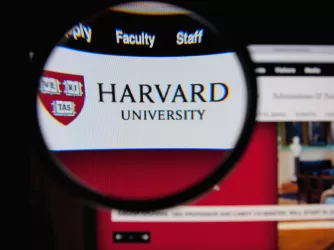Table of Contents
Arizona State Student Government Impeaches Senator, Citing Two Problematic Justifications

In October, Arizona State University (ASU) Undergraduate Student Government (USG) senator Isabelle Murray was impeached after her peers charged her with speaking to the student newspaper The State Press without notifying USG leadership in advance. A press release from USG enumerates the grounds for impeachment, which also included her allegedly releasing the details of a student’s private case with the Office of Student Rights and Responsibilities and failing to attend meetings. Though FIRE has no position on the latter charge (Murray claims those meetings interfered with classes), USG was wrong in citing Murray’s constitutionally protected speech as justification for impeaching her.
The Student Press Law Center (SPLC) reported on the case after Murray’s impeachment:
Murray … spoke to a reporter of The State Press, the student newspaper at the university, earlier in October about a bill she was working on regarding black face paint at football games. Murray did not notify the USG senate president or president prior to the interview, which violates USG’s “expectations” when addressing the media.
Those “expectations” say that senators “[m]ust inform President of the Senate or President of USG of intention to address media before making any comments related or unrelated to USG.” This is an incredibly broad restriction. Does USG really have a legitimate interest in prohibiting, for example, a senator speaking with a student journalist who approaches him for an impromptu comment on his favorite campus eatery?
USG President Cassidy Possehl claimed that the policy “is not for prior review of their statement, it is simply a request of notification beforehand.” But such an overreaching policy is bound to chill student speech. For one thing, it serves as a de facto prohibition on unplanned interviews with senators, a serious interference with reporting on quickly-unfolding events. It also sends a message that senators should be careful what they say, no matter what the topic. SPLC Executive Director Frank LoMonte explained, “Even just requiring a check in, it inhibits free expression because it gives the impression that the higher-ups have some degree of control over when, where and how you can speak.”
As The State Press editorial board argued, the effect of the notice requirement and other USG policies on senators’ speech will work to the detriment of the university community:
The only people who this policy benefits are those with the delusion that student government’s priority should be to look good.
By making expressing opinions cumbersome and risky, Tempe USG also limits our ability to fully disclose the happenings of student government. It is vital that we’re able to give you the opportunity to form a knowledgeable opinion of your student leaders. We want our sources to feel comfortable speaking their minds to us. We want a transparent, honest relationship with USG.
The State Press editor-in-chief Julia Shumway aptly notes that “no real world legislator” has to obtain permission before speaking to the press—“That would not work in a real world setting and that’s something that our student government is supposed to be preparing people for.”
As a governing body at a public university bound by the First Amendment, USG must allow its members to speak freely.
According to The State Press, Senate President Will Smith cited an alleged violation of the Federal Educational Rights and Privacy Act (FERPA) as the ultimate deciding factor in the question of whether to impeach Murray. FERPA was enacted to protect the privacy of students’ educational records, but is often erroneously used by universities wishing to resist requests for records that are not, in fact, governed by FERPA.
In this case, Murray forwarded to The State Press an email sent from a former USG senator to another student. Emails between students are not themselves educational records, and FERPA binds schools, not students. ASU’s Office of Student Rights and Responsibilities was therefore correct in telling Murray that the release of this email did not violate FERPA. In relying on this justification for Murray’s impeachment, USG grossly misinterpreted the law.
Despite all this, the Associated Students of ASU Supreme Court upheld the decision to impeach Murray in November. This result is disappointing, and it will effectively force students to choose between being members of USG and exercising the full extent of their right to express themselves without fear of retribution.
Recent Articles
FIRE’s award-winning Newsdesk covers the free speech news you need to stay informed.

Revoking Harvard’s tax-exempt status will threaten all nonprofits

Grandpa’s advice for the new wave of American censors

FIRE POLL: Only 1/4 of Americans support deporting foreigners for pro-Palestinian views
